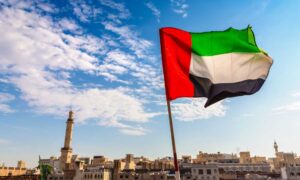Ramadan, a month of spiritual reflection and fasting for Muslims worldwide, brings about adjustments in working hours across sectors in the UAE. The Federal Authority for Government Human Resources (FAHR) plays a pivotal role in regulating these hours, ensuring balanced productivity and religious observance. This year’s announcement includes crucial updates for public sector employees, providing insights into flexibility and remote work options during this auspicious time.
The Federal Authority for Government Human Resources: Ramadan Working Hours Announcement
The FAHR recently unveiled the revised working hours for public sector employees during Ramadan. According to the announcement, employees are scheduled to work from 9 am until 2:30 pm, Monday through Thursday, and from 9 am until midday on Fridays. Moreover, ministries and federal agencies retain the autonomy to implement flexible or remote schedules, aligning with organizational needs while respecting religious practices.
Ramadan Working Hours for the Private Sector
Shortly after the FAHR’s declaration, the private sector’s Ramadan working hours were also disclosed. This parallel update ensures cohesion across industries, promoting uniformity and clarity for employees and employers alike. Private sector employees can anticipate schedule adjustments, ensuring seamless coordination with the public sector during this period.
الهيئة تعلن ساعات العمل في شهر رمضان للجهات الاتحادية
— FAHR (@FAHR_UAE) March 4, 2024
مع إمكانية منح المرونة للموظفين للعمل عن بعد يوم الجمعة خلال الشهر ، وبنسبة لا تتجاوز 70 % من إجمالي عدد موظفي الجهة، وفق الضوابط المعتمدة. pic.twitter.com/7NpFc7FfkC
Adapting to Flexible Work Arrangements
The FAHR’s emphasis on remote work options, particularly on Fridays, underscores the importance of accommodating employees’ diverse needs. This flexibility allows individuals to observe religious obligations while maintaining professional commitments. However, organizations must adhere to the stipulated cap of 70 percent remote work participation to ensure operational continuity and efficiency.
Impact of Ramadan on Workplace Dynamics
Ramadan’s observance extends beyond fasting; it fosters a sense of communal solidarity and empathy. Employers are encouraged to foster inclusive environments that acknowledge and respect diverse religious practices. Organizations cultivate a culture of empathy and understanding by accommodating employees’ spiritual needs, enhancing employee morale and productivity.
Conclusion
The announcement of Ramadan working hours by the FAHR reflects a commitment to accommodating religious observances while ensuring organizational continuity. As organizations navigate these adjustments, fostering inclusivity and understanding becomes paramount. By embracing diversity and respecting employees’ religious practices, workplaces can cultivate a culture of empathy and unity, fostering mutual respect and collaboration.



























